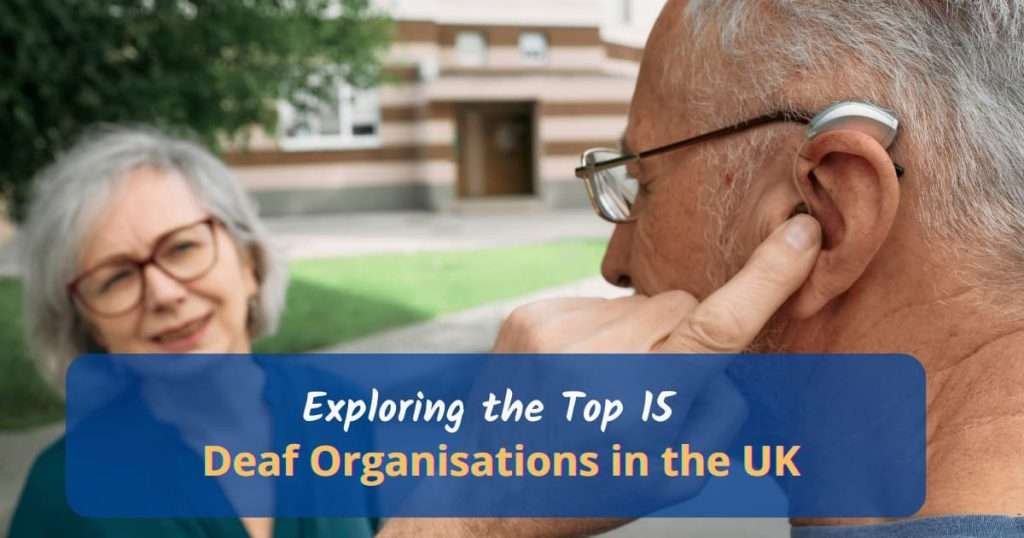What are the top 15 Deaf organisations in the UK and why are they so significant? if you are learning BSL you will know that Deaf* Organisations are integral to the Deaf Community and Deaf Culture. Many organisations have historical significance as well as practical importance. They are also likely to be organisations with job opportunities. If you are learning BSL, or are looking for ways to connect with the Deaf community, then check out our list of the top 15 deaf organisations in the UK.
NB:*Deaf relates to supporting native sign language users. These are individuals who use BSL as their first or main language for communication. Here’s our list of the top 15 Deaf organisations in the UK:
1. British Deaf Association
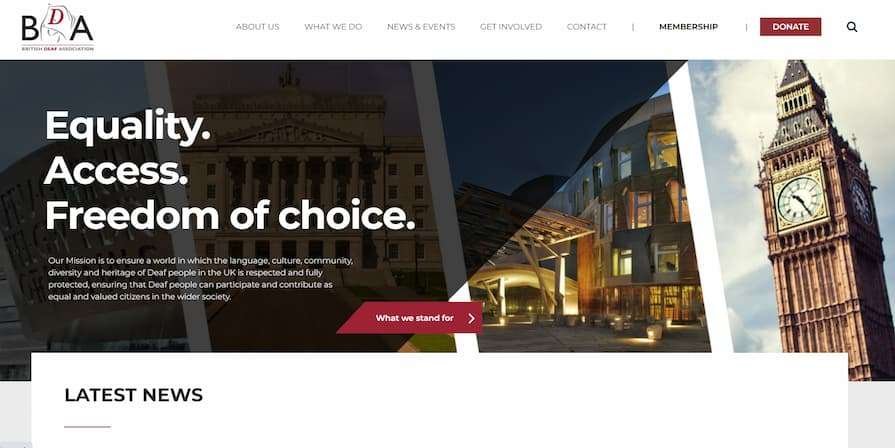
The British Deaf Association (BDA) was founded in 1900 in response to the 1880 Milan conference and the focus on oralism. At the time, many native sign language users thought that deaf culture and sign language would be destroyed, so the BDA was set up to protect BSL and deaf culture.
The BDA continues to passionately advocate for the equality of BSL. They have been responsible for many campaigns including the most recent campaign for the BSL Act in England. Scotland already had a BSL Act so up until recently, BSL was protected in Scotland but nowhere else in the UK. Now that BSL has legal recognition, service providers are legally required to offer information and support in BSL where appropriate.
The BDA also research on the impact of barriers to accessing support and services. For example, they carried out research on deaf prisoners and the impact of being incarcerated with no communication support.
This vital organisation is committed to securing the future of BSL for future generations to come.
2. SignHealth
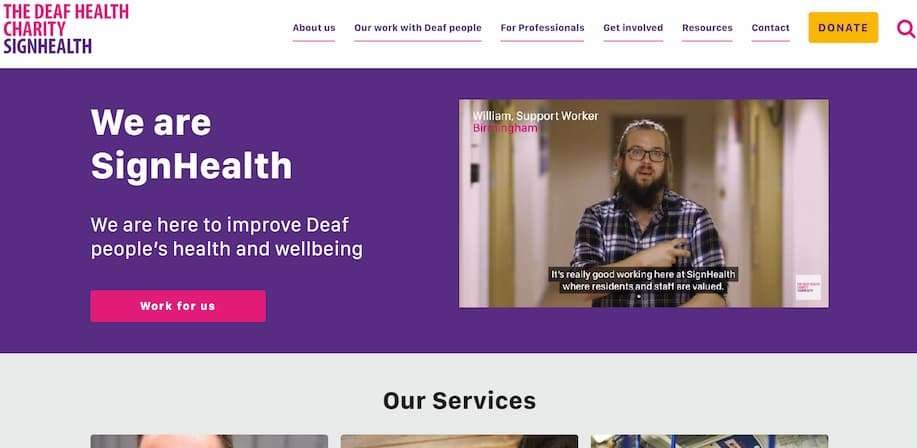
SignHealth was set up in 2010 due to the gaps in healthcare. Sign Health provide counselling support and health information that has been translated into BSL. During the pandemic, they set up an emergency health service that enabled native sign language users to access healthcare using video relay interpreters.
Unfortunately, NHS England did not want to continue funding the service so the service stopped at the end of March 2021. A similar service is now provided nationally via interpreting agencies that provide video relay services.
SignHealth is a remarkable organisation that works to improve the health and wellbeing of native BSL users. They collaborate with the NHS and actively advocate on behalf of the Deaf community.
They also provide domestic abuse support to women and children affected by domestic violence. SignHealth concentrates on the unique health challenges of the deaf community, playing a pivotal role in ensuring deaf individuals receive necessary support for leading healthy lives.
3. UK Deaf Sport
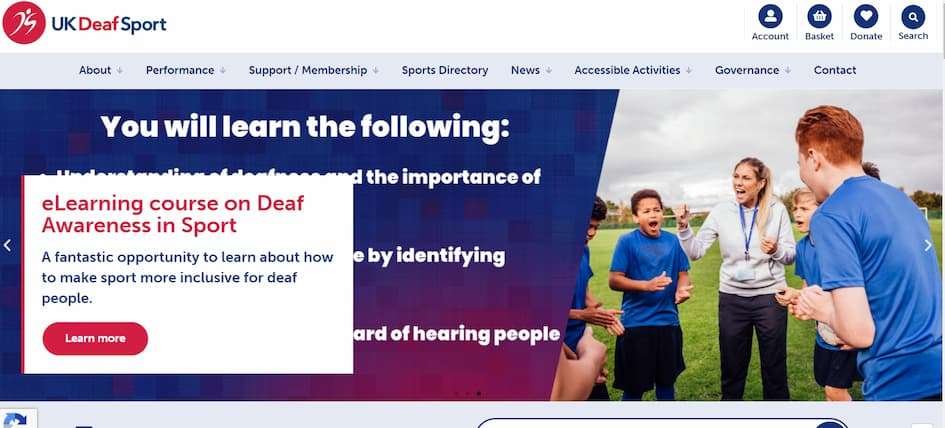
UK Deaf Sport support accessible sports activities. They provide training to venues and sports organisations on how to make activities more accessible and inclusive.
They support a number of activities such as supporting the Deaflympics GB team and partnering with Sport England to encourage deaf and hard of hearing people to get fit. Their campaign ‘#DeafActiveOnline‘ encourages people to keep fit from the comfort of their own home.
UK Deaf Sport also provide a range of clips showing sport related BSL signs.
4. NDCS (National Deaf Children’s Society)
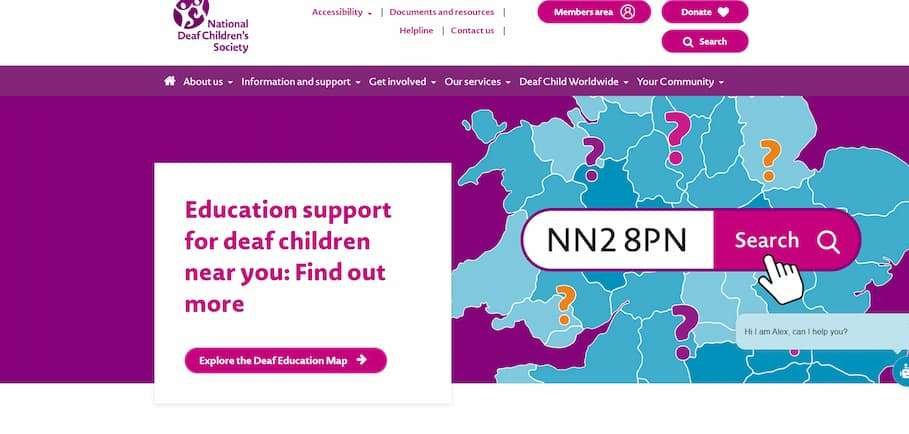
The National Deaf Children’s Society (NDCS) focus on information to support children in school and beyond. They provide advice, information and support to parents with deaf children, professionals working with deaf children and young people with deafness or hearing loss. They also encourage using BSL and have a number of resources on their website to encourage parents to learn BSL. The NDCS mission is to create a world without barriers for deaf children and young people.
90% (1 in 10) of deaf children are born to hearing parents with little or no experience of living with deafness or using sign language. So, the NDCS is a vital lifeline for these families. Their services include one-to-one support, access to specialist teachers, and a resource hub that gives deaf children and their parents the tools and knowledge to thrive.
5. NRCPD
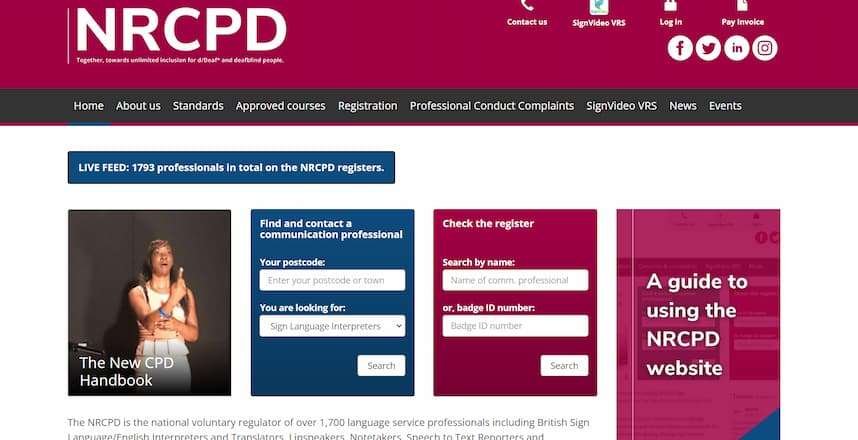
The National Registers of Communication Professionals working with Deaf and Deafblind People (NRCPD) is a national register of all qualified communication professionals which include: BSL interpreters, BSL translators, Lip Speakers, Note Takers, and BSL Translators. They also investigate any professional conduct complaints made against interpreters.
The NRCPD also list the approved interpreting courses for those who wish to be a fully qualified interpreter. Interpreters are required to complete a minimum of 24 hours CPD every year to remain on the register. The register sets the standard of BSL and interpreting skills needed to work with deaf and deaf-blind individuals. All interpreters on the register must also be insured.
Businesses and organisations can use the register to find appropriately qualified communication professionals when meeting the needs of a deaf person using their service.
6. ASLI
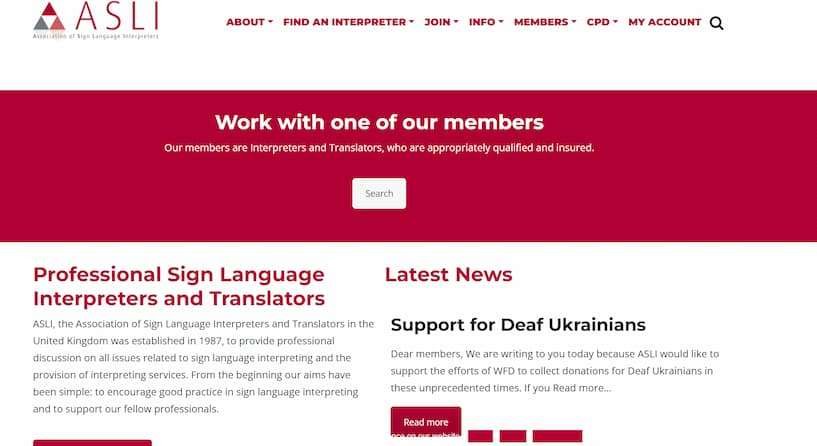
The Association of Sign Language Interpreters (ASLI) supports BSL interpreters and translators by raising issues at government level and providing CPD training opportunities to their members. Most trainee and registered interpreters are members of ASLI. Scotland have their own association named SASLI.
ASLI supports its members to follow best practice and to support fellow interpreters. ASLI also supports events such as the World Association of Sign Language Interpreters (WASLI). The organisation also provides a monthly magazine (NEWSLI) highlighting any current topics relevant to interpreting professional practice.
7. RNID
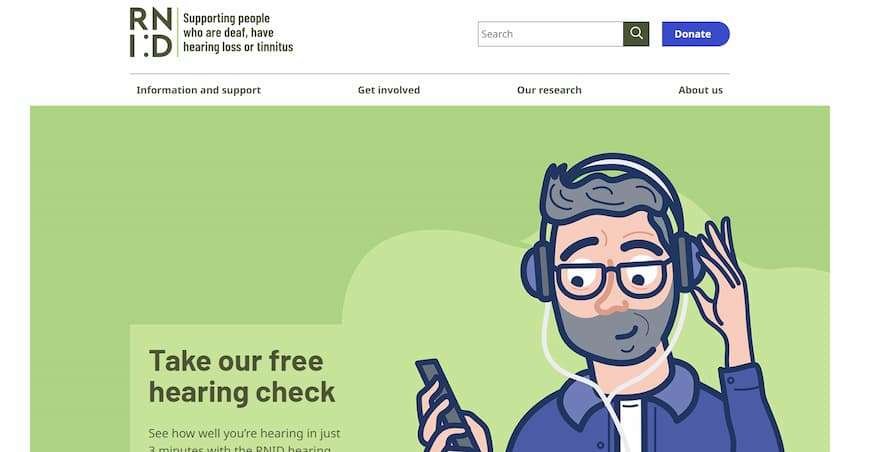
The Royal National Institute for the Deaf (RNID) was set up in 1900s. The organisation changed their name to Action on Hearing Loss 2011 to reflect how the organisation had moved to focusing on hearing loss as well as deafness. In 2021, the name changed back to RNID.
The organisation’s main focus is still on hearing loss rather than sign language users. However, from a brand recognition perspective, the name remains RNID. The charity has had a tumultuous history with native sign language users. Doug Alker, a former chair of the RNID wrote a book called Really Not Interested in the Deaf – which outlined the problems experienced by Doug, the first profoundly deaf chair of the organisation.
RNID provides a number of services:
- Offer free, confidential, and impartial information to individuals who are deaf, have hearing loss, or tinnitus
- Sell equipment that improves the lives of people with hearing loss
- Offer training services (BSL and Deaf Awareness)
They also support businesses with guidance, training, and resources to meet the needs of those with hearing loss.
8. DeafBlind UK (Sense)
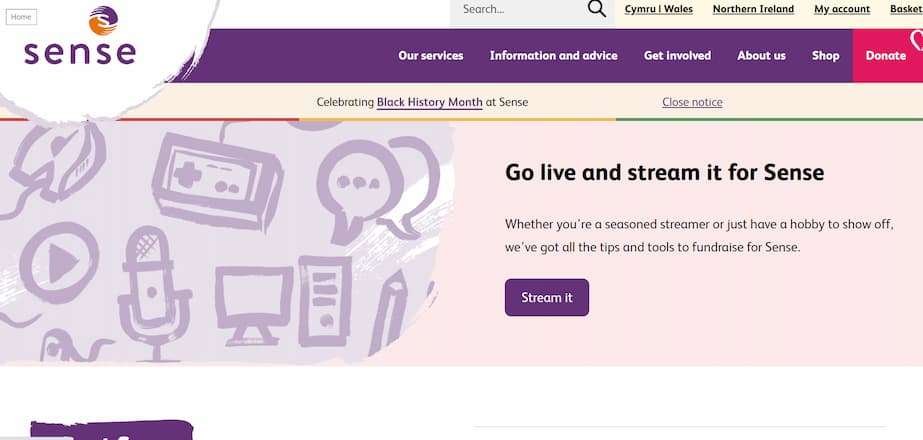
Sense works with people who have dual sensory loss (deaf-blind). They run a number of residential services
9. BSL Zone
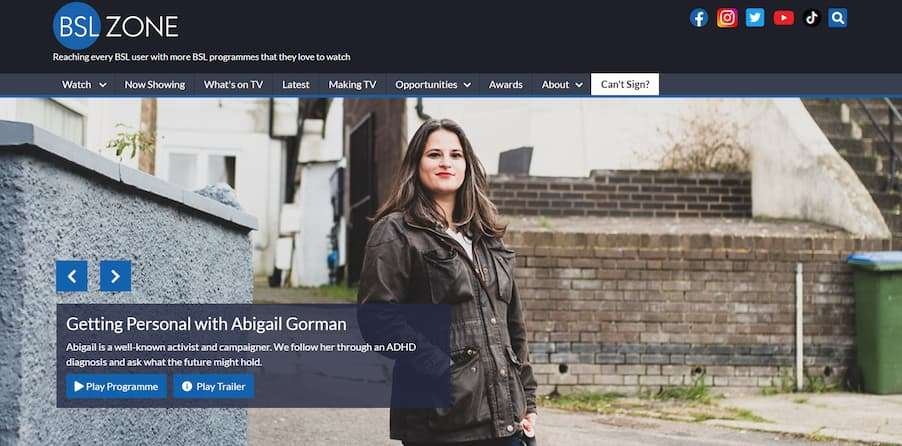
BSL Zone is the first Deaf tv channel provider across the UK. They create a number of programmes, some of which are educational and useful for BSL learners. Others are focused on entertainment. All programmes are made to be as accessible as possible so include BSL, captions and audio description.
BSL Zone is an excellent channel for BSL learners to watch, particularly for practising receptive skills.
10. Deafinitely Theatre
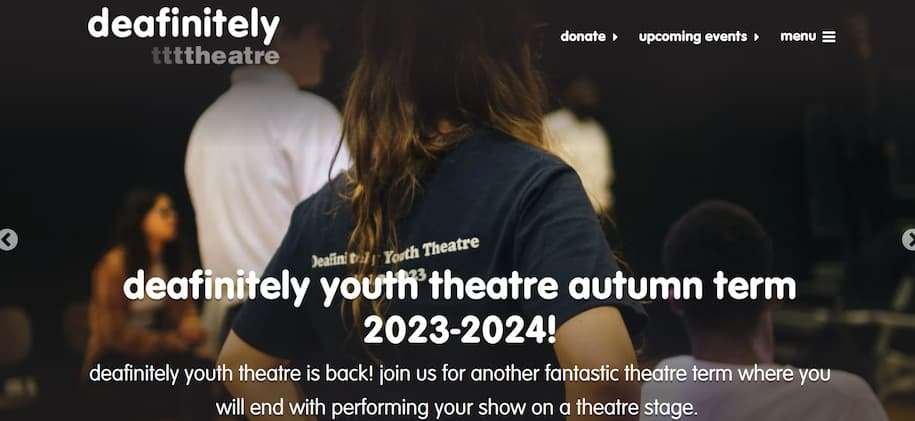
Deafinitely Theatre is the UK’s first professional Deaf-led theatre company, founded in 2002 by Artistic Director Paula Garfield. The company aims to create accessible theatre experiences for Deaf and hearing audiences alike, showcasing the exceptional talent of Deaf actors, writers, and directors. They also provide training, development, and support to aspiring Deaf artists through workshops, mentoring, and networking opportunities.
Deafinitely Theatre has produced various successful productions, performed in both British Sign Language (BSL) and spoken English, ensuring an inclusive and engaging theatre experience for all.
11. Graeae Theatre Company
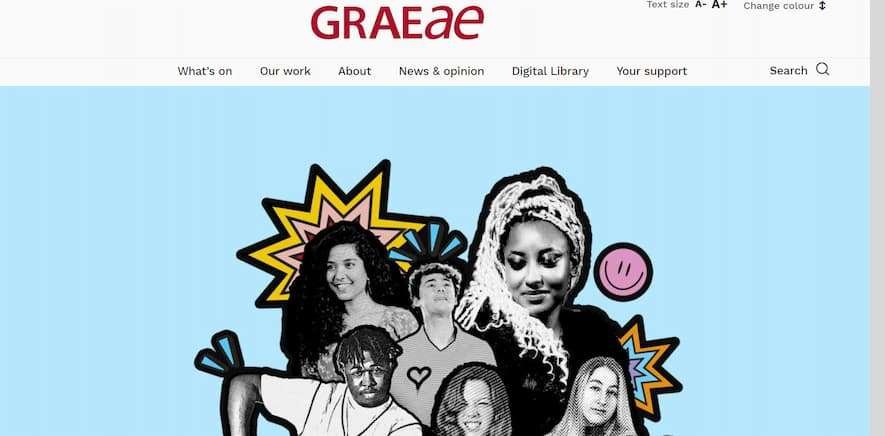
Graeae (pronounced ‘grey – eye’) theatre company was founded by Jenny Sealey. Graeae is a deaf-led organisation that puts Deaf and disabled artists front and centre of theatre production.
Graeae uses the social model of disability for framing how accessibility is discussed. Performances are accessible to deaf and hearing audiences. They have performed around the country in various festivals to help local festivals engage with their local Deaf communities.
12. Deaf Unity
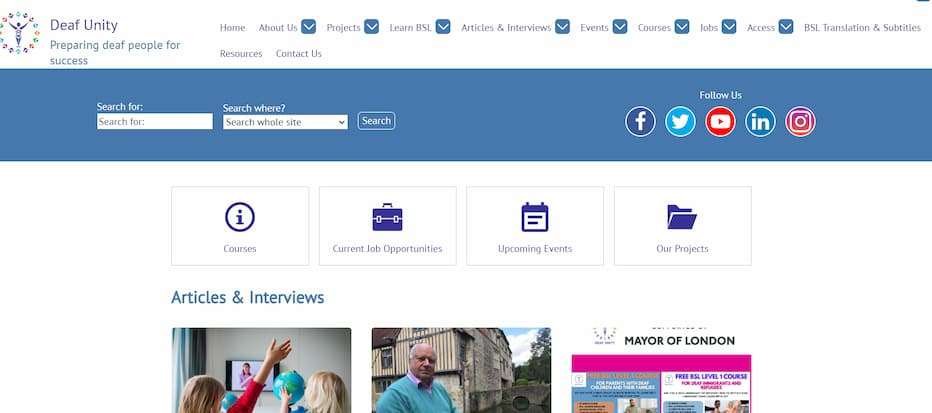
Deaf Unity is a charity focused on empowering Deaf people by providing access to education, employment, and community support. They offer a range of services, including a mentorship program, career advice, and educational resources for Deaf individuals, as well as workshops and training for organisations seeking to become more Deaf-aware and inclusive.
Deaf Unity also organises the Deaf Empowerment Awards, an annual event that celebrates the achievements of Deaf individuals and organisations that have made a significant impact on the Deaf community.
Deaf Unity also provide BSL courses up to Level 6
13. RAD (Royal Association for Deaf People)
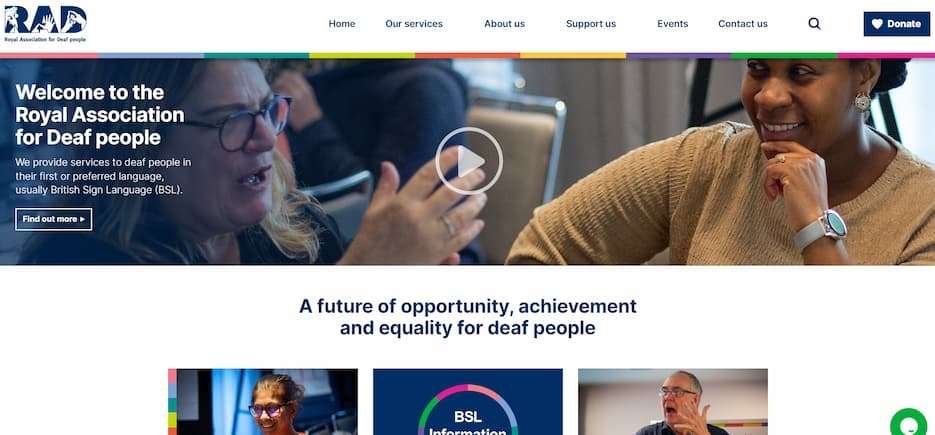
The Royal Association for Deaf People (RAD) was established in 1841 and is dedicated to promoting the welfare and interests of Deaf people. They provide a wide range of services such as advocacy, employment support, information and advice, and communication services.
RAD also offers training and consultancy services for businesses and organisations looking to improve their accessibility and inclusivity. These services ensure that deaf people can access the resources they need in their first or preferred language.
RAD also provides BSL courses.
14. Hearing dogs for the deaf
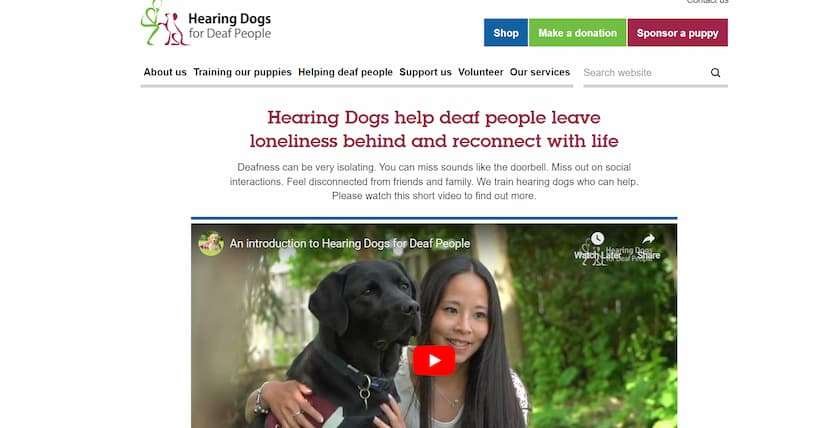
Hearing Dogs for the Deaf UK started as a small initiative by Dr. Bruce Fogle, Lady Beatrice Wright, and veterinary surgeon Mike Stockman. They believed that dogs could be trained to help deaf individuals better navigate their lives, just as guide dogs aided visually impaired people. From humble beginnings, the charity has grown into a widely respected organisation, having trained and placed more than 2,000 hearing dogs with deaf partners across the UK.
These specially trained dogs provide essential support by alerting their deaf partners to various sounds, such as doorbells, alarm clocks, and fire alarms. Additionally, hearing dogs offer companionship and emotional support, reducing feelings of isolation and promoting a sense of well-being.
Hearing Dogs also provide a list of local meet up groups who help with fundraising, raising awareness of deafness and provide friendship for individuals with hearing dog partnerships.
15. British Association of Teachers of Deaf Children and Young People (BATOD)
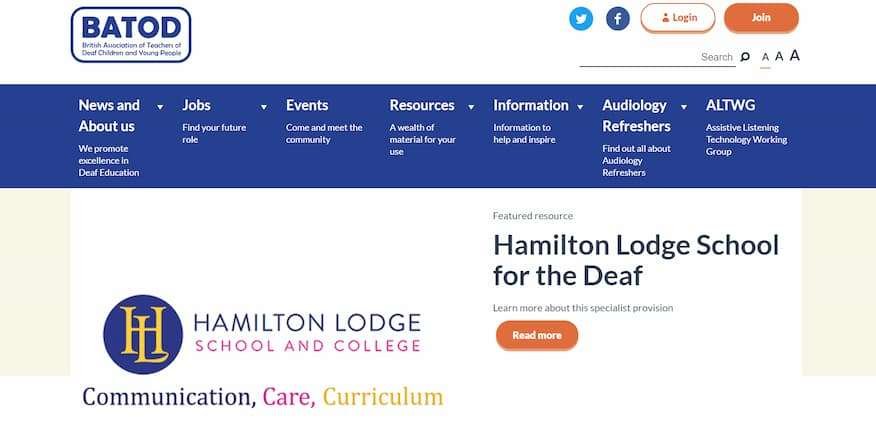
BATOD organise CPD courses and national and regional meetings to provide relevant up-to-date information and to disseminate good practice for Teachers of the Deaf.
The British Association of Teachers of the Deaf (BATOD) is an organisation that:
- Helps further excellence in Deaf Education
- Ensures that the interests and welfare of teachers of deaf children and young people in the UK are properly represented
- Holds regular conferences and workshops across the nation to help advance members’ professional skills
- Provides invaluable support to people who work with deaf children
BATOD is the only professional association dedicated to supporting teachers of deaf children and young people in the UK. It is a deaf organisation that is committed to advancing the educational opportunities of all deaf children, young people, and adults, and ensuring their interests are protected. Through their tireless efforts, they play a vital role in shaping the future of Deaf Education.
The Importance of Deaf Organisations and BSL
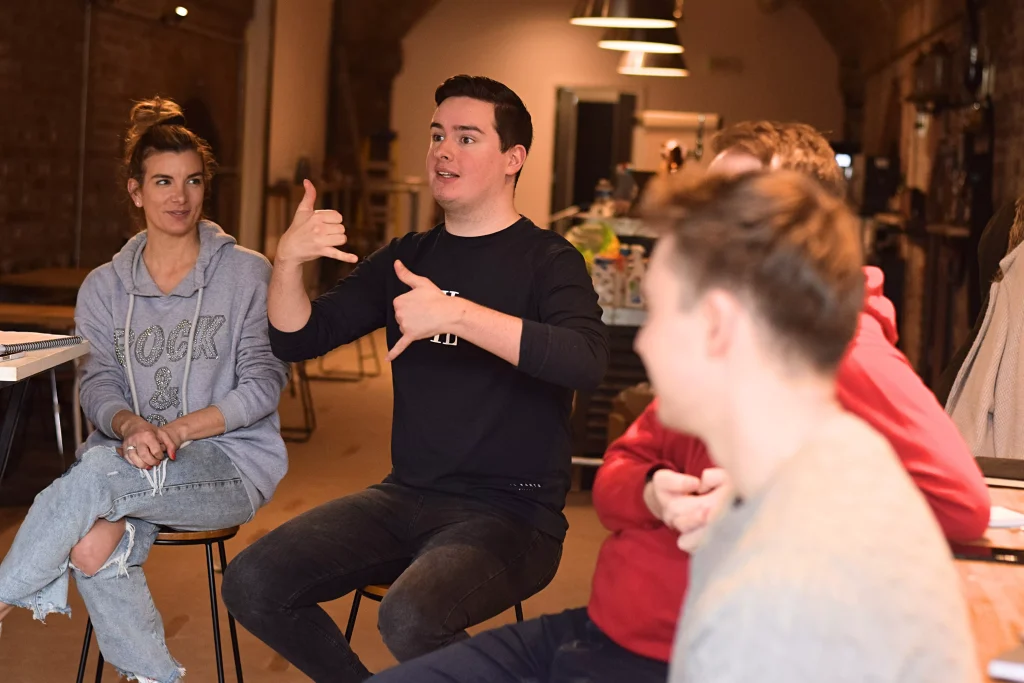
All these organisations understand the need for services and resources to be accessible to people who use British Sign Language as their first or preferred language. Accessible services play a vital role in fostering equality and accessibility.
Supporting Deaf Children and Young People

Deaf charities provide a wealth of empowering support for deaf children and young deaf people everywhere, including:
- Informative resources on childhood deafness
- Deaf-friendly technology loan services
- Mental health support
- Social and educational activities
These organisations help reduce barriers and create opportunities for deaf children to reach their full potential.
Deaf charities provide deaf children and young people with access to specialist teachers, support groups, and engaging social activities, ensuring they have the necessary tools and resources to excel in their education and social lives. These organisations play a critical role in helping deaf children and young people overcome challenges and achieve success.
Technology and Accessibility for Deaf People
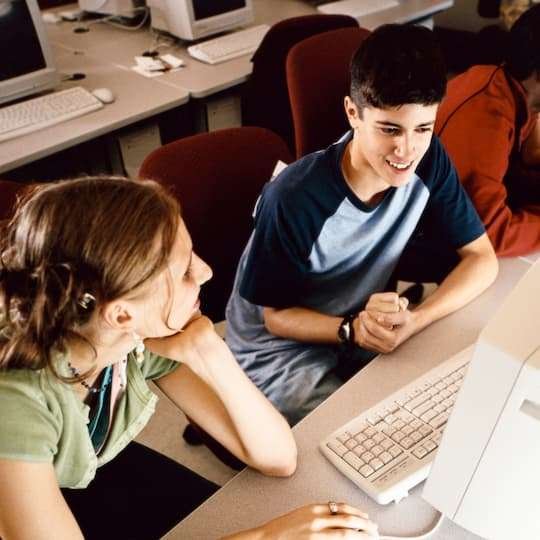
Technology and accessibility initiatives are crucial in empowering deaf people in the UK to lead more independent and fulfilling lives. These initiatives include digital literacy services and sign language interpreter provision, which can greatly improve the quality of life for deaf individuals.
Despite potential barriers such as cost, availability, and awareness, deaf people can benefit greatly from accessing technology and accessibility initiatives. Staying current with the latest advancements and resources allows deaf individuals to stay connected, informed, and engaged in their daily lives.
Employment and Career Opportunities for Deaf Adults
Deaf adults can access a wide range of employment and career opportunities through various initiatives offered by deaf charities. These include:
- Access to work support
- Training and education courses
- Job placement services
- Resources to create inclusive workplaces
Some deaf charities assist deaf adults in their job search. They also support employers by helping them create a more inclusive and accessible workforce.
Mental Health and Wellbeing in the Deaf Community
It is essential that deaf people have access to the same mental health services as hearing people. Deaf charities play a vital role in providing support for mental health challenges, domestic abuse, and promoting positive mental health within the deaf community.
Through their collaboration with other organisations, deaf charities work tirelessly to improve mental health service provisions for deaf children and young individuals.
Inclusive Sports and Leisure Activities
Inclusive sport and leisure activities are vital for good mental health and wellbeing. Organisations like UK Deaf Sport play a pivotal role in encouraging sports centres to provide inclusive sports and leisure activities. Accessible and engaging environment for deaf individuals leads to active, healthy lives.
Volunteering and Fundraising for Deaf Charities
Volunteering and fundraising play a significant role in supporting deaf charities and their causes. Individuals can make a real difference in the lives of deaf people by volunteering their time and skills, helping spread the word about deaf charities, and providing invaluable support to those in need.
Fundraising is also essential in providing the funds required to continue the incredible work of deaf charities. Individuals can contribute to the ongoing success of these organisations and help to improve the lives of deaf people in the UK by volunteering, organising events, or donating directly to the charity.
Summary
Deaf charities in the UK are doing incredible work to provide support for, empower, and uplift the deaf community. By offering services and resources in areas such as education, mental health, employment, and accessibility, these organisations are breaking down barriers and creating a more inclusive society for deaf people.

